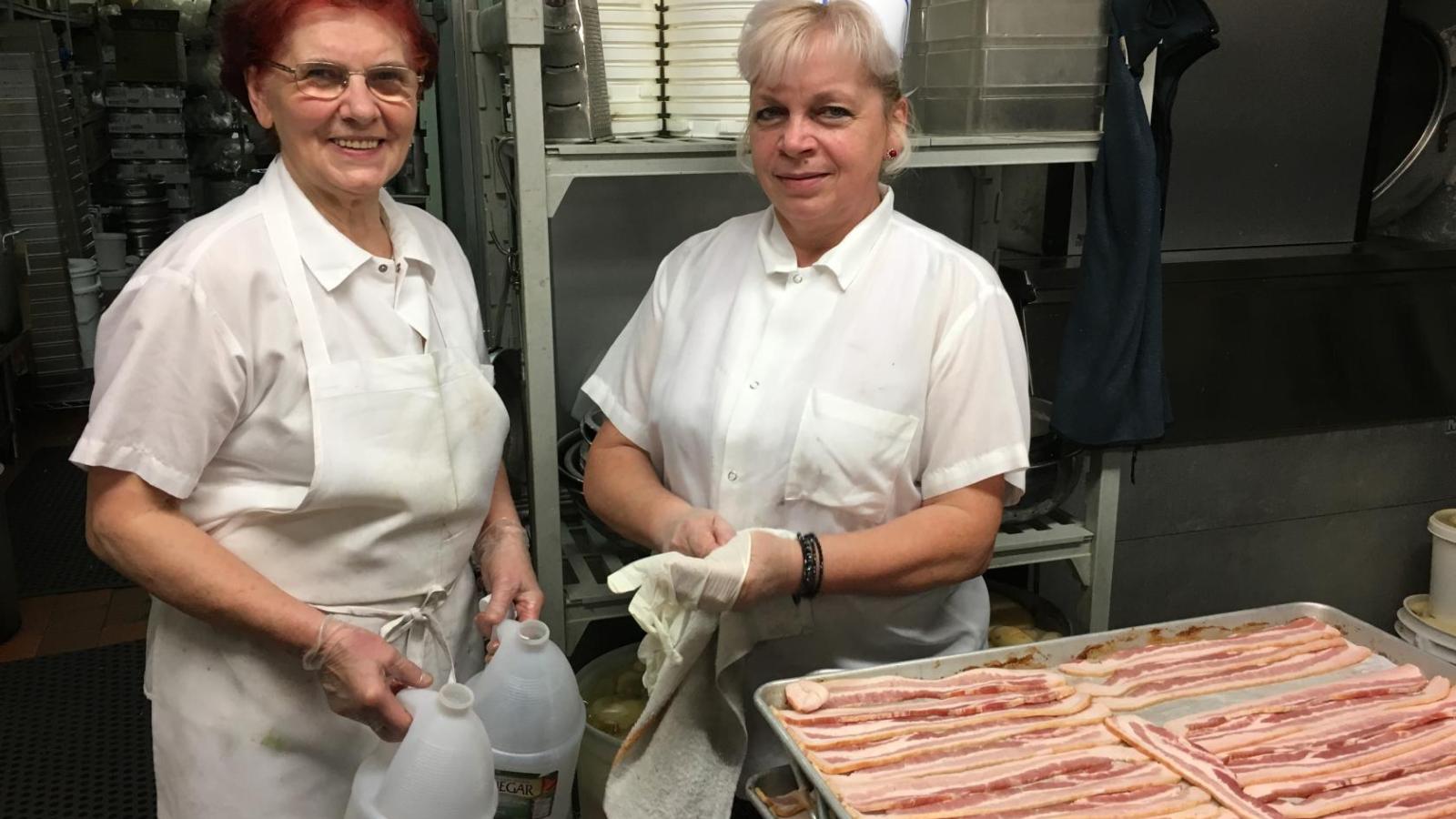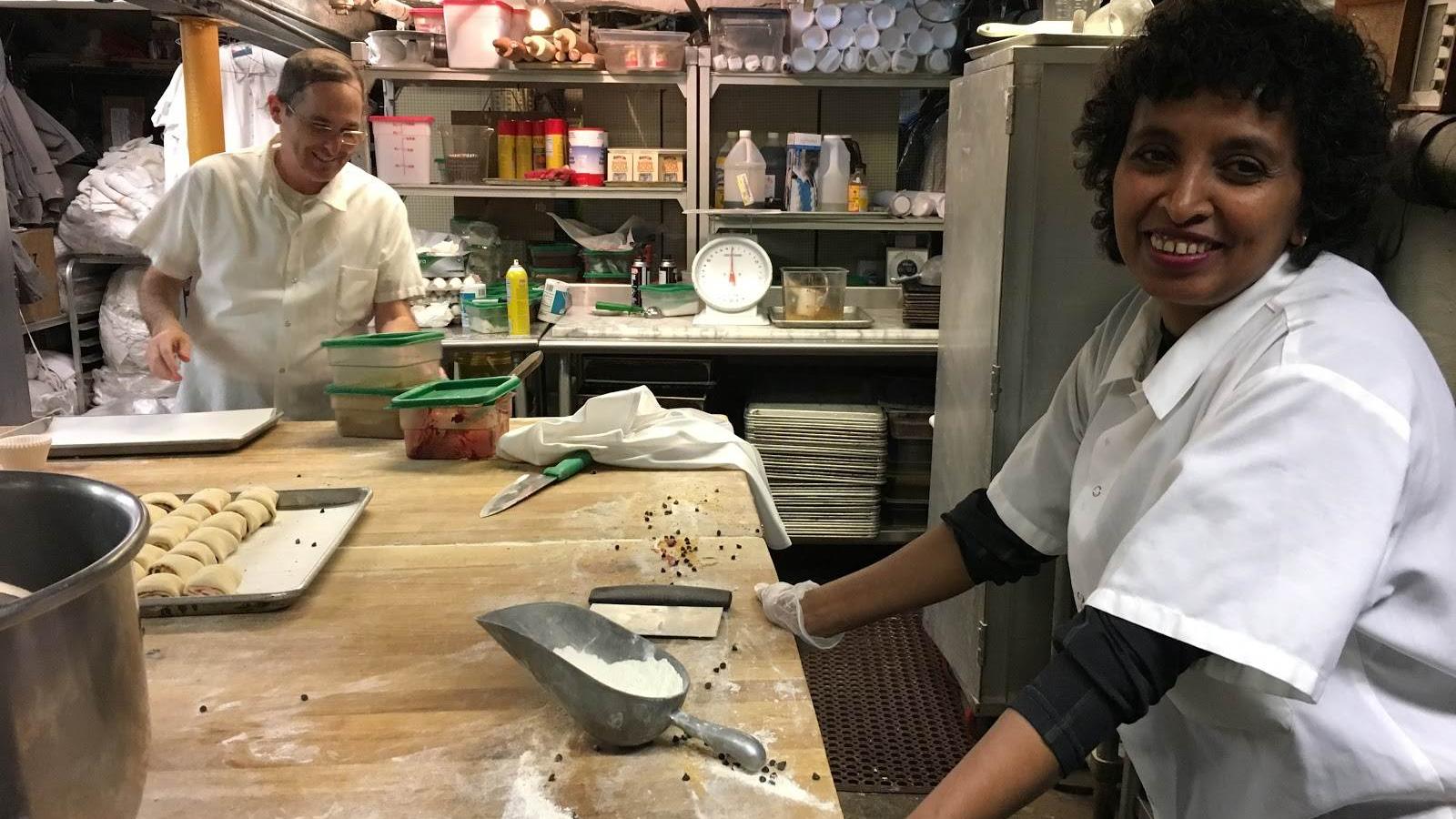Veselka
Evening revelers who fetch a late-night bite of pierogis at Veselka diner might not know that beneath their feet in the basement, many of the bustling workers who peel potatoes, wash dishes and prepare the borscht are over 50 years old.
The East Village fixture has been owned by the same Ukrainian family since 1954, and their desire to hold onto longtime employees has led them to create an atmosphere where those workers know they are valued.
Unlike many restaurants, Veselka offers health insurance to all of its 90 staffers, while also hosting a profit-sharing program.
Camaraderie and pride are evident among the staff, who usually take breaks together at the counter. Employees can enjoy any meal on the menu for a special price of $2.50. The discount is one of the ways management shows staff they are appreciated. They also get meals on their days off at a 50 percent discount.
Though a place that’s open 27/7 counts on employees to cover their shifts, it’s common for Veselka to allow long unpaid leaves for workers who hail from other countries and need to visit home or who work as actors and land roles.
Specific Age Smart policies and practices:
Flexibility and cross training: Schedules are made a week in advance, and 9 out of 10 times, workers’ requests for specific days off are honored.
Though kitchen workers at Veselka often specialize in making certain dishes, everyone is cross-trained so that they can fill in for each other. In recent years, they have created a restaurant cookbook so that anyone can make the recipes that previously were eyeballed by those who knew them well.
In a city where so many employees depend on public transportation, minor lateness is tolerated. A warning gets issued if someone is, say, 30 minutes late and doesn’t call to explain why.
Opportunities for education, training and advancement: Kitchen workers can start in an entry-level position and advance to take on more responsibilities. For instance, an immigrant from the Ukraine who was hired off the street as a prep cook was able to hone his cooking skills thanks to mentorship from Veselka’s pastry chef, a graduate of the Culinary Institute of America. The restaurant paid to send the new employee to culinary school and then made him their executive chef.
Every new employee gets a week of training, which includes shadowing three to four more seasoned employees and taking a 50-question food test to prove they know the menu.


